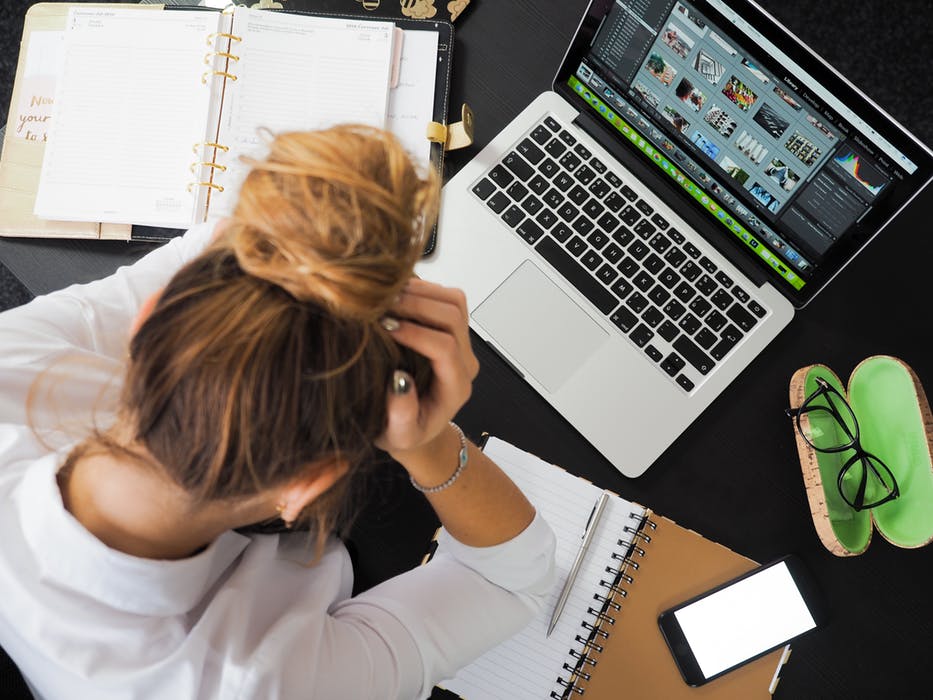Stress in the workplace is a common problem and can seriously harm the physical and mental well-being of workers. There is no denying that the everyday life of sitting long hours in the office can lead to physical discomfort and even more stress. On average, many people sit at the desk for over 1,500 hours a year. No wonder that back pain is commonplace for many office workers.
At the same time, with the appropriate precautions, the burdens that hours of work at the desk bring, can be relieved. With a few simple tricks, you can limit the strain and make long work days less stressful. Here are some of them.
Have The Right Chair
You do not need an expensive chair to sit as back-friendly as possible. It is essential that the seat height and depth can be adjusted comfortably. The same applies to the armrests and backrests.
Your chair should be adjusted so that the feet are fully seated on the floor. Upper and lower legs should form a right angle, and the knees should be about a fist wide distance from the seat cushion.
Also, adjusting the backrest ensures that you are sitting upright. This is very important for people with pre-existing conditions such as a herniated disc – it pays to buy a more expensive seating with individually adapted supports and special suspension. This way, the back muscles are always in motion.
Adjust Your Work Table
The table does not have to be the most expensive table in the world. It merely needs to be adjustable in height. This is because the height of the work surface should be such that you can relax your hands. It is also vital that you have a sufficiently large work surface available.
In addition to a work table matching your own body dimensions, an extra high desk is practical, because working upright or standing relieves the back and the legs. The change between the two places activates the circulation and standing encourages concentration.
Standing is the natural attitude of man, and thanks to modern workstations with laptops, switching between both tables is easily possible. You can also combine a standing desk with a standing desk balance board. This encourages you to move and stay active throughout the day.
Relieve Your Eyes
In addition to the body, the eyes should be relieved to help your concentration. Sufficient lighting achieves this. However, you should make sure that no disturbing reflections arise. Also, adjust your monitor so that the top edge of the screen is not above eye level. The optimal posture of the head is slightly inclined forward.
A laptop is not really suitable as a working device as its small, low display causes a stooped, unhealthy posture. Rather, a large external monitor is more suitable.
Take Regular Breaks
Do not forget to take breaks throughout the day. Working for too long a period is less effective, and those who work too long at one go are less concentrated and make more mistakes.
Leave your desk for a short break or take a short walk. This is especially for the people who sit a lot. As a rule of thumb, five minutes break per hour can keep the head fit and promote not only health but also performance.
When work is stacked on your desk, a break is probably the last thing you think about, though the short recovery time may prove beneficial. Take the lunch break to leave the office or take a ten-minute walk in between. This helps to reduce stress and increase your productivity. Having a healthy diet is also essential; an easy way to boost your immune system is to get a cup of tea more often because unsweetened teas can aid with concentration. Another essential is to have a healthy lunch can boost brain performance and relieve stress.
Have Recovery Periods
An increase of stress is often due to the increasing workload – an overflow of the email inbox or a to-do list that continues to grow – this all adds to the stress. Such excessive workload can even cause workers to be afraid to stay home even when they are ill. This can lead to insomnia, anxiety and other health problems.
It is important to have enough recovery time to help eliminate stress at work, no matter how much working pressure. Employers are in the duty of care and must make sure that you are fit and healthy enough to work.
Get In Shape
Regular exercise reduces stress and can keep your health and well-being in check. Even if you have a busy schedule, it is important to exercise regularly – be it a morning session at the gym to recharge your batteries, or go for a round of jogging after work to clear your mind. Even if this isn’t a daily activity, three times a week is enough to get your blood pumping and ensure you have a healthy active lifestyle to negate all the sitting down your job may entail.
Protect Yourself
Even though it is easier said than done, try not to put yourself under pressure. If you are feeling too stressed, you need to recover from burnout at the end. This will undoubtedly affect your work. Maybe take a day off work to simply relax, and take time for yourself. Weekends often get snapped up with socializing, and you can forget to rest and focus on you, so try and take time out of your schedule for you, so you are not overwhelmed. This will inevitably affect your work output eventually.
Socialize
Whether you are talking to colleagues or to your supervisor, good relationships within the company are important because they can provide support in stressful situations. Interacting and discussing any problems you may have is a good way to alleviate some of the stress you may be feeling. That being said, the workplace and its environment itself determine how well and focused you can work. Those who work undisturbed on a project should avoid distractions caused by loud noises such as the telephone or other colleagues, if possible.


